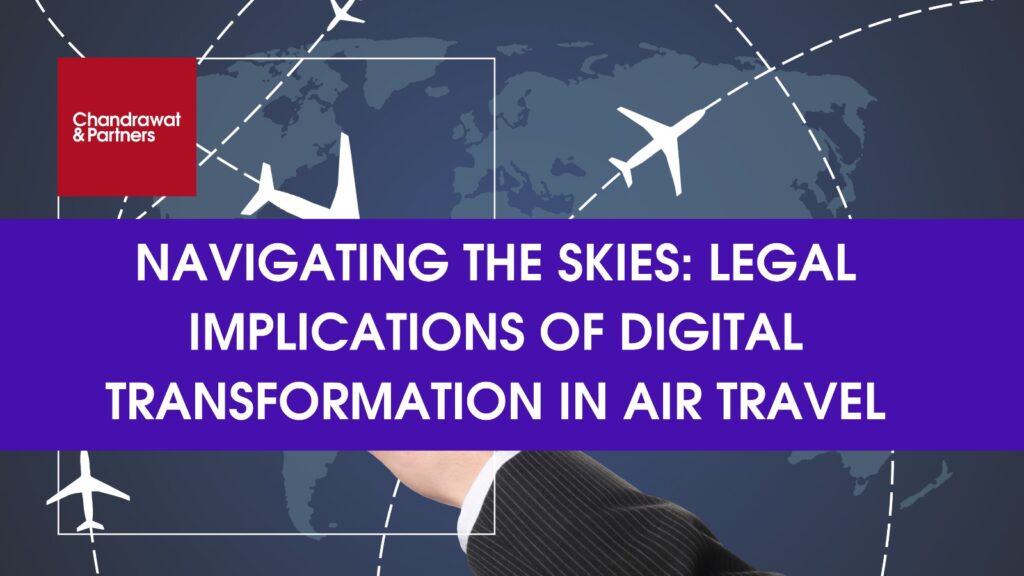Introduction
The aviation industry is undergoing a revolutionary change with the major digital transformation. The integration of cutting-edge technologies is reshaping the way airlines operate, passengers travel, and regulators enforce safety measures.
The industry faces a few challenges as mentioned below-
Data Privacy and Cybersecurity:
As the air travel industry becomes increasingly dependent on digital systems, the collection and processing of vast amounts of passenger data raise significant concerns about privacy and cybersecurity. Airlines must comply with data protection regulations and legal frameworks such as GDPR (“General Data Protection Regulation”), to ensure the secure handling of passenger information and protect against cyber threats.
Electronic Ticketing and Contracts:
The shift from traditional paper tickets to electronic ticketing has streamlined the check-in process but also raises legal questions about the validity of digital contracts. Airlines must ensure that their electronic ticketing systems comply with international aviation laws and passengers must be informed of the terms and conditions associated with digital tickets.
Regulatory Compliance:
Digital transformation introduces new challenges for regulatory bodies tasked with ensuring aviation safety. The integration of technologies like Artificial Intelligence (“AI”) and the Internet of Things (“IoT”) necessitates updated regulations to address issues such as autonomous flight systems, drone usage and the security of connected aircraft.
Smart Airports and Infrastructure:
Smart airports leverage digital technologies to enhance operational efficiency and passenger experience. However, considerations arise in areas such as intellectual property rights, data ownership and liability for system failures.
Environmental Impact and Regulations:
As the aviation industry embraces digital transformation to improve fuel efficiency and reduce environmental impact, legal challenges emerge concerning emissions standards, noise regulations and the responsibility of airlines to adhere to environmental policies.
Digital transformation in air travel presents unprecedented opportunities and challenges, requiring a careful examination of existing legal frameworks and the development of new regulations. As the industry continues to evolve, stakeholders, including airlines, passengers and regulatory bodies, must collaborate to ensure a legal landscape that fosters innovation while prioritizing safety, security, and ethical considerations.
How we can help?
We collaborate closely with leading aviation lawyers worldwide, renowned for their expertise in aviation law, to provide clients with seamless legal support across all levels. This consortium approach empowers our clients with access to both Indian and international legal knowledge and capabilities, all under one roof.
Our advisory services span every significant facet of aviation law and litigation. We routinely assist a wide range of aviation clients, including airlines, airports, aviation service providers, maintenance organizations and others, with transactional, corporate advisory, financing, regulatory, and litigation matters. Our expertise extends to international arbitrations linked to aviation operations.
We are widely recognized for our powers in advising various airports, both domestic and international and for our contributions to aviation-related litigation and arbitration, including international arbitration proceedings.
For more information or queries, please email us at
enquiries@chandrawatpartners.com





